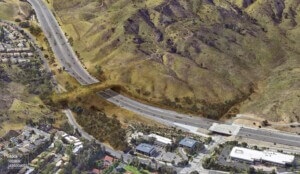Boston has suspended construction activity throughout the city as a precaution against the spread of coronavirus (COVID-19).
Mayor Martin J. Walsh announced Monday that the moratorium on construction work would go into effect on Tuesday, March 17, and construction sites need to be secured by March 23.
Walsh’s action comes after he declared a public health emergency in Boston, postponed the Boston Marathon, and canceled the St Patrick’s Day Parade over infection concerns. It makes Boston one of the first cities or districts in the U. S., other than those in complete lockdown or quarantine, to ban construction activity as a way of fighting the coronavirus. The move comes at a time when the city and region are booming with construction activity, from affordable housing to high-rise office buildings. Walsh did not say how long work will be suspended, but he indicated it’s likely to be at least 14 days.
“Effective tomorrow, Tuesday, March 17, 2020, we are suspending all regular activity on construction sites in the city of Boston,” Walsh said in a briefing yesterday. “The only work that we are anticipating right now moving forward in the city will be emergency work” approved by the city’s Inspectional Services Department.
“These decisions that we make are not easy, but they’re out of an abundance of caution,” he added. “It’s about protecting the worker and preventing the spread of the coronavirus.
“This is a critical time for us right now… I think if we can prevent the spread from happening and try and level the virus off, we’ll be in a better position long term.”
The mayor said he didn’t have an exact figure for how many construction projects are affected by his order, but he knows it is substantial.
“It’s massive, massive,” he said at the briefing. “I don’t have a number. It’s tens of thousands. We’re in the middle of a boom right now, and…today is a difficult decision to make… Construction is at the core of our economy here in Boston. I come out of the trades. I was a construction worker myself. This is something that is very personal to me and to a lot of us.”
Mayor Walsh added that city officials will monitor the situation closely to determine when the moratorium can be lifted.
“Out of an abundance of caution, we ‘re looking at 14 days potentially, and then we’ll revisit it and hopefully they can be the first workers back to work.”
The moratorium is “something that we’re going to be monitoring literally week to week,” he said at another point. “Hopefully, in the next couple of weeks, we’ll be able to change the policy. But right now, out of an abundance of caution for the workers on the job site and to prevent spreading the virus, we want to make sure those workers are safe.”
According to a statement posted on the city’s website, the city is instructing employers to “maintain necessary crews to keep their sites safe and secure, keep any materials from blowing away, and prevent trespassing. This work needs to be completed in the next week, by Monday, March 23, 2020.” Once sites have been secured, the message said, skeleton crews will be permitted on site “for the remainder of the suspension” to ensure safety, but no construction activity can take place.
Walsh said Boston has 33 confirmed cases of Boston residents with COVID-19 as of Monday, March 16, and the construction moratorium is part of a multifaceted effort to address the spread of coronavirus.
“The coronavirus is one of the greatest public health challenges that our city has ever faced,” he said at a press briefing. “Our primary objective right now is to slow the spread and flatten out the curve so that our medical centers don’t get overwhelmed. This strategy is crucial to helping our most vulnerable residents and make sure that we can rebound from this as soon as possible.”
According to Walsh’s order, the only exceptions to the construction ban are: “emergency utility, road or building work,” such as repairing gas leaks, water leaks and sinkholes; new utility connections to occupied buildings, mandated building or utility work; work that “ensures the reliability of the transportation network,” work on facilities that support “vulnerable populations,” and work needed to make occupied buildings “fully habitable.”
Walsh said the city may make exceptions on a case-by-case basis for “essential” projects that “support increased public health and safety.” But he said new projects cannot be started after March 17, unless approved by the city. In his briefing, Walsh said he hopes employers don’t fire their employees as a result of his action.
“I want to remind Boston employers that we’re in a robust construction market,” he said. “Boston is home to a talented, hard-working construction workforce and when we get back to work as usual, employers need to bring these workers back and the right thing that we need to do right now is to lay them off and not fire them.”
Meanwhile, one state away, New York Governor Andrew Cuomo said he wants to increase construction of at least one type of building, medical facilities, and he wants the federal government to do it.
“Let’s bring in the Army Corps of Engineers and let’s start building temporary medical facilities because we know we’re going to need them,” Cuomo told CNN. “As many as we produce, if we started today, as many as we can produce, we would need twice.”
Cuomo said he has confidence in the Army Corps of Engineers to move quickly and complete projects that individual states need but don’t have the resources to take on. New York State has one of the highest volume of confirmed cases of coronavirus in the United States, more than 600 people.
“The Army Corps of Engineers builds. I used to be in the federal government. I worked with the Army Corps of Engineers. They build bridges. They build airports. They’re builders. They’re engineers… They build. Let them come in, build with me.”
Cuomo also said he can identify state-owned properties that can be retrofitted to accommodate coronavirus patients. “I’ll find an old dormitory, an old nursing home. Let’s convert it to a hospital and let’s do it quickly so we have some backup space when the wave crashes on the health care system.”











